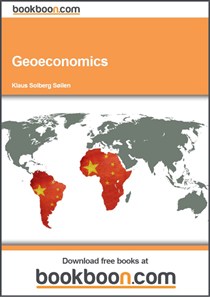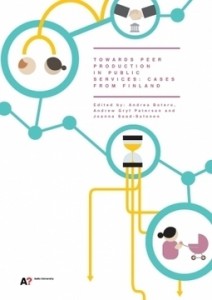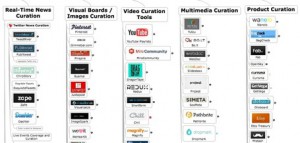
Whether it was the Higgs Boson, or just a reference to the actual particle, the CERN discovery is already generating cultural waves and memes.
How to explain Higgs boson discovery | Science | The Guardian

Whether it was the Higgs Boson, or just a reference to the actual particle, the CERN discovery is already generating cultural waves and memes.
How to explain Higgs boson discovery | Science | The Guardian

Algorithm identifies top ten technology news trend setters
Kurzweil Accelerating News, July 5, 2012
Berlin Institute of Technology researchers studied the problem of trend-setting among news sites to determine which websites lead the news coverage and which ones merely follow, Technology Review Physics arXiv Blog reports.
They took a snapshot of the words generated by 96 technology news websites at any instant in time and compared them to the words generated by one of these websites at an earlier time.
This allowed them to calculate whether the content of this single website is a good predictor of future content on other websites and ranked them according to this metric.
. . . . . . . . . .
In this case, the trend setters are simply the ones who post the wires stories first or who post so many of them that they are first often enough to seem like trend setters.
This list, linked: businessinsider . arstechnica . engadget . techcrunch . mashable . venturebeat . techdirt . theregister . forbes
guardian
Continue reading “Yoda: Top Ten Technology News Trend Setters”

Dave Winer was one of the first bloggers, creator of ThinkTank (early outlining program for Apple II), creator of early blogging software, creator of RSS. So it's worth paying attention to his infotention tools — Howard
“My name is Dave Winer. When I designed Radio2, I aimed to create the minimal blogging tool, one that did the least possible and still was useful. Simple yet useful, and usable.
It's for short-form blogging, the kind of stuff we do in Twitter. You're looking at a web page, and think “I want to remember this, or share this.” One click on the bookmarklet, quick — you're still in the flow of what you were doing.
The goal was to create something that has the ease of Twitter, with the open potential of blogging. There are tradeoffs, some things that Twitter will always do better, because they are an all-in-one, centralized system. But there are also many things Radio2 can do that Twitter can't, because we aren't protecting a business model.”

With the shift from geopolitics to geoeconomics the focus is no longer the Heartland or the Rimland, or any coherent geographical region, but the set of all geographical locations containing economically-important natural resources, what we shall call the Nareland (Natural Resource Lands). This new logic of dispersed geographical locations marks the shift from geopolitics to geoeconomics.
The centre stage has been taken over by the private-sector organization, the corporation. This means that power has been transferred from the public to the private sphere. It means that the nation state is ceding its power to individuals – less in some countries and more in others, for instance less in Sweden than in the USA; but the trend is clear, and it is global.
About the Author
Dr Klaus Solberg Søilen is Associate Professor at Halmstad University in Sweden and Professor at Nordic International Management Institute (NIMI) in Chengdu, China. He is the editor-in-chief of Journal of Intelligence Studies in business (JISIB) and the associate editor of International Journal of Innovation Science (IJIS). Before entering academia he worked for ten years in industry, in the US, Europe and Scandinavia, the last three as auditor by KPMG Oslo.

Aalto University in Finland has a new publication: Towards Peer Production in Public Services: Cases from Finland available for free download. The book's description reads: “There are many challenges and opportunities in designing, developing and maintaining services for participatory modes of governance, not to mention their co-creation and peer-to-peer aspects. We ask what can be learned from the current research, and what is happening already beyond academia? With the aim to increase the opportunities for dialogue between the Finnish scene and the international context, we have gathered this collection of articles that deal broadly with the relationships between peer-to-peer dynamics, and public services.

Most of the cases presented are illustrative of recent developments and discussions in Finnish society, however, also included are broader international perspectives, giving historical reflection and future-oriented speculation on how peer production might affect the structures of our society.”
KF: An interesting book available under a reasonably new “copyfarleft” licensing arrangement. The book provides some useful insights into openness and peer/collaborative production strategies. It brings to mind the Cachalot (http://itunes.apple.com/au/app/cachalot/id458866319?mt=8) book from Duke University where expertise is crowd-sourced, peer review is managed and distribution is open-source. These new models of content creation and distribution are set to challenge the established (dis)order of publishing and distribution. Thanks to Yves Simon for the suggestion.
Via jean lievens

Robin Good: Everytime I see a new post or article claiming to list the best content curation tools I know I am in for some disappointment.
Most of these lists just pick up names from other lists without even bothering to check, test or verify what these tools actually do, whether they are still available. Unfortunately the rush to put out “curated” list of tools and services has created more misinformation than useful lists.

But if you, like me, are on the lookout for new and effective tools to curate your own content or the one of your customers, I have created a comprehensive map of all the curation tools available online and I keep it fresh and updated almost on a daily basis.
The map presently lists over 250 content curation tools which you can navigate much more easily than it was possible on my earlier versions of this map.
On the right side of the map you will find all of the news and content curation tools available online today. On the left side, you can find bookmarking, link lists builders, clippers and lots of tools to operate with RSS feeds (which are still at the heart of a curator's job).
Full map: http://bit.ly/ContentCurationUniverse Share it. Via Robin Good
Phi Beta Iota: Most of the logos are live. Some are known attack sites at this time, be mindful of the warning notice when offered.

Towards a Match.com for Economic Resilience in a Crisis-Stricken World
So that’s what he’s been up to! My good friend and mentor Ken Banks of Kiwanja fame has just launched a very interesting initiative entitled “Means of Exchange“. Ken wants to democratize opportunities for radical economic self-sufficiency and thus render local communities more resilient to exogenous shocks. “I’ve been taking an increasing interest in economic resilience,” writes Ken, “particularly how technology might help buffer local communities from global economic down-turns. Ironically, since I started my research the world has entered a period of growing economic uncertainty. The causes–although fascinating–don’t so much interest me, more the response at local, grassroots level.”
To say that Ken’s ideas directly resonate with my ideals would be a huge understatement. My iRevolution blog is currently in its fifth year of production and as the About page explains, “This blog features short thought pieces on how innovation and technology are revolutionizing the power of the individual through radical self-sufficiency, self-determination, independence, survival and resilience.” I’m incredibly excited by Ken’s new initiative. He quotes this excellent comment by Calvin Coolidge, which really hits home:
“We pay too little attention to the reserve power of the people to take care of themselves. We are too solicitous for government intervention, on the theory, first, that the people themselves are helpless, and second, that the government has superior capacity for action. Often times both of these conclusions are wrong.”
I have written many a blog post on this very people-centered notion as applied to crisis early warning and humanitarian response. Hence my pitch two years ago for a Match.com applied to humanitarian relief. Take this blog post, for example: “The Crowd is Always There: A Marketplace for Crowdsourcing Crisis Response.” But Ken is not just advocating for a “Match.com for Economic Resilience,” he is also building the infrastructure to make it happen: “A number of apps to support this work are planned for rollout during the year, with the first due for release in summer 2012.”